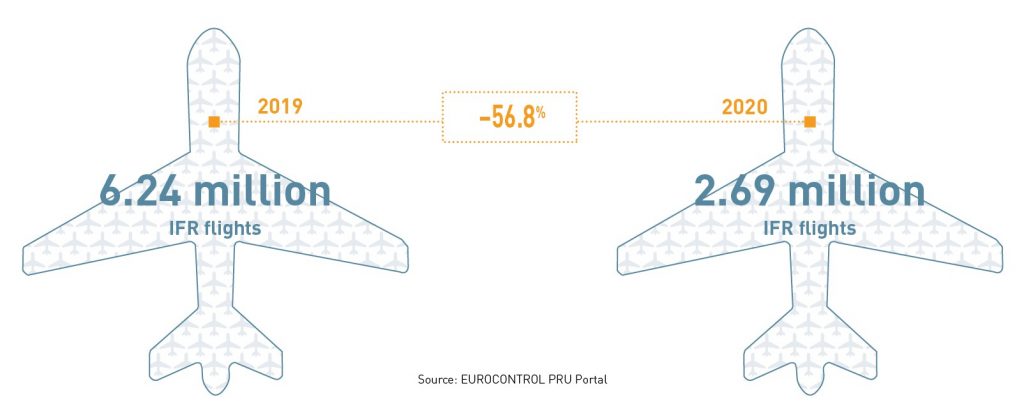FABEC provides critical ATM infrastructure and pursues its structural reforms during health crisis
Functional Airspace Block Europe Central (FABEC) traffic tumbled 57% in 2020 to 2.7 million movements as a result of pandemic restrictions and an unwillingness to travel. Responding to the urgent need for medical, cargo and repatriation flights, FABEC air navigation service providers (ANSPs) rapidly put in place COVID-safe measures to provide critical airspace infrastructure and ensure safe and timely flights. Air traffic services continued uninterrupted despite airline fee deferrals and the new staff procedures. In addition, military flight operations have been conducted throughout the year.

While FABEC total traffic fell below volumes previously handled at the end of the last century, FABEC ANSPs used the downturn to implement efficiency measures including more direct, shorter routes and improved vertical flight profiles. Total en-route air traffic flow management delay fell 88.6%, and the airport arrival delay fell 82.5% as FABEC ANSPs responded flexibly to the schedule disruption.
Predicting traffic demand is increasingly difficult. Eurocontrol’s initial forecast for 80% recovery by year-end was downgraded to 55% in September 2020, and a return to 2019 levels within the FABEC airspace forecast not before 2024. Acknowledging the big uncertainty FABEC ANSPs are using this period to enhance cooperation, improve environmental performance and increase digitalisation in line with European Commission objectives while being prepared for the return of traffic.
FABEC Chairman and skyguide CEO Alex Bristol said: “FABEC controllers play a critical role in supporting safe and efficient delivery of essential supplies. It is vital we continue to invest in the critical ATM infrastructure to ensure we are ready for traffic return from 2024.”
Maurice Georges, FABEC Champion Operations and DSNA Director stressed: “FABEC staff demonstrated huge resilience and flexibility during the pandemic. Thanks to our strong collaboration, we can take advantage of new, coordinated operational initiatives supporting even more efficient sky, with enhanced environmental performance.”